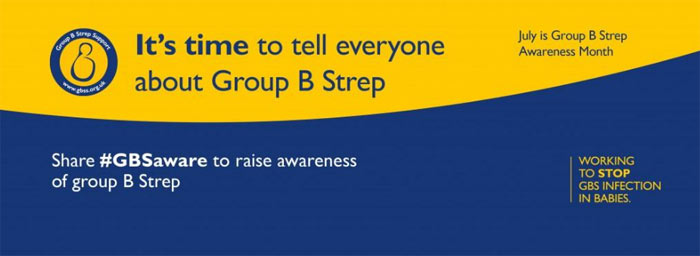Understanding Meningitis Prevention during GBS Awareness Month
Each July, patient advocates, medical professionals, and healthcare groups work to promote Group B Strep, or GBS, awareness month throughout the UK. GBS is the most common cause of infection in newborns, and the severe medical condition can be life-threatening. An average of two newborn children develop Group B Strep each day, and one baby dies each week from the infection. Establishing a month of awareness for GBS is vital in bringing to light a serious health epidemic and providing invaluable education on how to detect GBS in pregnant women, the symptoms of the infection, and steps for preventing GBS in newborns.

Deciphering the Types of Meningitis
As an inflammation of the membranes that protect the brain and spinal cord, meningitis comes in a variety of forms all which are correlated to a bacteria or virus. To help ensure prevention of GBS, it is first important to understand the most common types of meningitis that can occur in newborns and adults.
Viral – Viral meningitis is one of the most common types of infection, and while it is rarely life-threatening, it can cause a variety of health conditions that can be life-changing. There are many viruses that can lead to viral meningitis, and no single treatment is known to clear the condition. Thousands of cases occur each year, mostly in newborns and children under 18 months old.
Bacterial – Bacterial meningitis covers several different forms of the infection, including GBS. When bacteria enter the bloodstream and travels to the brain and spinal cord, bacterial meningitis may occur. In some cases, an infection of the ear or sinuses may lead to the development of bacterial meningitis. TB meningitis, pneumococcal meningitis, and meningococcal disease are all forms of bacterial meningitis. Newborns are the most susceptible to bacterial meningitis because their bodies are not yet fully developed.
Group B streptococcal – GBS is caused by the Streptococcus bacteria which typically lies dormant in the intestinal tract. However, an estimated 10 to 30% of pregnant women carry GBS bacteria which is passed along to a newborn child at birth. Because a newborn’s immune system has yet to develop fully, the bacterial infection can spread through the blood causing serious illness or death.
Symptoms of GBS
For most cases of Group B Strep, the warning signs and symptoms are hard to recognise, especially in newborns and young children. It is necessary to seek immediate medical attention, however, if any of the following conditions are noticeable:
A persistent fever
- Reduced appetite
- Irritability when being held
- Difficult to wake or unresponsive
- Grunting or difficulties breathing
- An increased or decreased breathing rate
- Blotchy or pale skin
- Convulsions or seizures
- Swollen abdomen
In addition to these common symptoms of GBS, a newborn may also develop red or purple spots that do not fade when pressure is applied, an arched back that is persistent, or a soft spot. It is crucial that parents bring children to see a medical professional as soon as one or more of these signs of GBS takes place in a newborn, given that the effects of the infection can be detrimental long after a diagnosis and treatment are provided.
GBS Prevention
Early detection of GBS is one of the front lines of defense against the infection that could prove harmful to a newborn. However, a solicitor from a medical negligence specialist firm that works alongside a Group B Strep support charity explains that pregnant women are not offered testing as a routine part of their care in the UK. Unlike many other developed countries, testing for GBS is not available within the NHS but instead through private organisations for a fee. Performing a GBS carriage test is a crucial component of prevention among susceptible patients like newborns, as it provides an opportunity to give higher-risk women low-spectrum antibiotics in labour to reduce the early onset of a GBS infection in new babies.
In addition to offering testing for Group B Strep during pregnancy, vaccines are available to help prevent other forms of meningitis in young children. However, there are not yet vaccines for every form of meningitis, leaving millions at risk of developing GBS early on in life. Currently, the best method for prevention of GBS is being aware of the signs and symptoms, and testing for the bacteria during pregnancy so that medical intervention can take place early.
